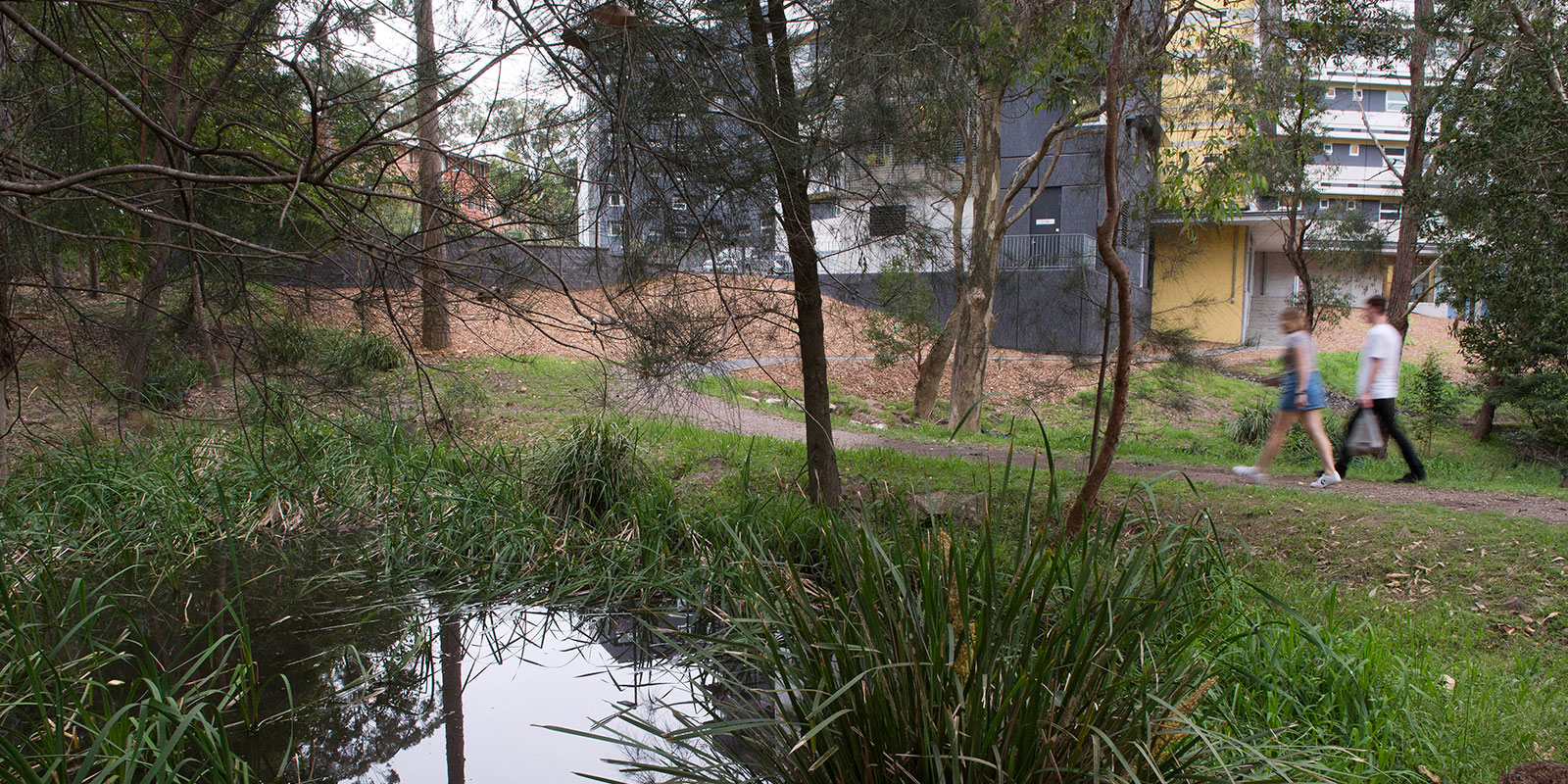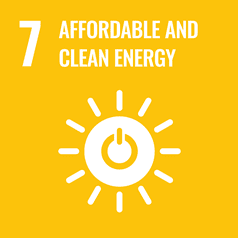

Goal 7:
Affordable and Clean Energy
Energy Efficient Renovation and Building
The University of Newcastle has a formal policy in place to ensure that all new buildings and major renovations are designed and constructed in accordance with recognised energy efficiency and sustainability standards. As outlined in our Environmental Sustainability Policy (2024), the University commits to ensuring that all new building developments achieve a minimum six-star Green Star ‘Design & As Built’ rating, a benchmark developed by the Green Building Council of Australia to promote energy-efficient, environmentally responsible construction. This policy (effective from the 8th of December 2022 and reviewed December 2025) is part of our broader goal to reduce greenhouse gas emissions, integrate renewable energy systems, and align capital works with national standards and best-practice sustainable design principles.
In 2024, we reaffirmed our goal to implement best-practice sustainability initiatives and ensure that environmental responsibility is at the core of our decision-making processes. This includes a whole-of-institution approach that aligns with our values, strategic priorities, and global sustainability frameworks such as the United Nations Sustainable Development Goals (SDGs).
Purpose
The Environmental Sustainability Policy supports the University’s aspiration to operate as a world-class teaching and research institution that demonstrates global leadership in environmental responsibility. This policy enables the development and implementation of our Environmental Sustainability Plan, which guides ethical and sustainable practices in:
- Teaching and learning
- Research
- Campus operations
- Decision-making
- Community engagement
Policy Commitments for 2024
In 2024, the University continued to prioritise the following strategic actions and focus areas:
1. Energy & Carbon
- Commitment to carbon neutrality and emissions reporting under the National Greenhouse and Energy Reporting Scheme.
- Integration of renewable energy into University operations.
- Sustainable investment and procurement aligned with environmental, social, and governance (ESG) principles.
- All new buildings aim to meet a minimum 6-star Green Star ‘Design & As Built’ rating.
2. Water
- Reduce mains water usage through increased natural irrigation, water reuse, and water-efficient infrastructure.
- Protect local aquatic ecosystems and comply with regulatory standards in water management.
3. Waste & Recycling
- Set and monitor targets for waste reduction and recycling.
- Minimise single-use plastics and educate the University community on sustainable waste practices.
- Dispose of hazardous materials in compliance with environmental regulations.
4. Biodiversity & Landscaping
- Preserve native flora and fauna through responsible land and bushland management.
- Incorporate Indigenous knowledge into environmental stewardship.
- Enhance resilience to bushfires and other climate risks.
5. Engagement, Education & Research
- Ensure sustainability is embedded across curricula and research agendas.
- Partner with local and global organisations to support innovation in sustainability.
- Promote behavioural change through education, staff development, and student involvement.
Principles Guiding Our Work
As part of our environmental sustainability commitment, the following principles are embedded across University operations:
- Visible leadership and accountability for sustainability.
- Strategic resource allocation for sustainability initiatives.
- Continuous improvement and adaptive planning.
- Annual reporting to the Executive Leadership Team and University Council.
- Active staff and student participation in sustainability efforts.
- Alignment with the UN Sustainable Development Goals (2015).
Reporting & Accountability
Progress against this policy and our Environmental Sustainability Plan is tracked annually and reported via:
- The University’s Annual Report
- Updates to the University Council
- Oversight by the Executive Leadership Team
The University of Newcastle acknowledges the traditional custodians of the lands within our footprint areas: Awabakal, Darkinjung, Biripai, Worimi, Wonnarua, and Eora Nations. We also pay respect to the wisdom of our Elders past and present.